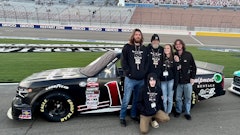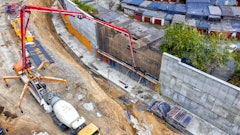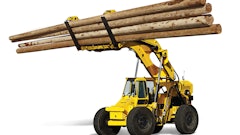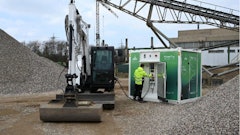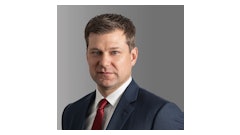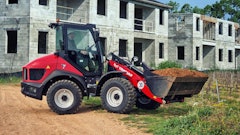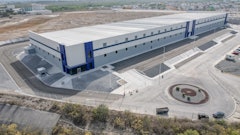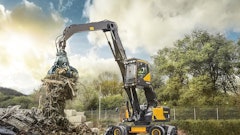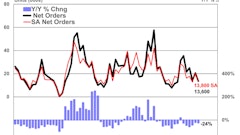
Staring into the 2018 construction season, I suspect many of you are expecting a good year with plenty of work to go around. Based on my experiences in the Midwest, I have to say that I expect this will be the case.
This would be a good thing — but on the other hand, it could be a bad thing if you don’t have your personnel and equipment needs figured out. Because if my assumption above is correct, I can assure you there will be shortages on both fronts.
A couple of things can help solve these problems. The first is to embrace technology and equipment rental in order to make your operation faster and more productive. The second is to train crews to make better use of equipment, especially those shiny new rental units that provide the right tool for the job. In the end, your goal should be to work more efficiently to the point where you can offset the need for more people, and at the same time make better use of the equipment available to you.
Concerning equipment training, I’ve heard many horror stories impacting both safety and productivity. You would think field supervisors would ensure all field personnel know how to properly and safely operate any equipment they’re required to use, especially if that type of equipment has a “danger” factor attached to it. It is tough to argue that the time and effort to properly train a worker is not worth the cost. I would say it is just the opposite — it is costing you more not to provide adequate training.
What rental units provide is the ability to let the rental company do the training for you. The rental company will be glad to do it, because if someone gets injured using one of its rental units, it gets dragged into the lawsuit and may in fact lose rental dollars on that unit because of legal issues. I suggest supervisors on down take the training and become certified to use the equipment.
The bottom line is it’s time to embrace available equipment and technology and to upgrade your training in how to properly use it. You’ll see your cost of doing business decrease because of improved productivity and efficiency. If you don’t, it’s time to find out why. Maybe the performance groups we discussed last month would be worth considering.
Implications of Tax Cuts
Now let’s talk a little about the new Tax Cuts and Jobs Act (TCJA). There is a lot in the TCJA for you to consider and take advantage of, but also a lot of very confusing material that can lead you astray if you’re not careful and working with a tax pro that knows your industry. The highlights as far as contractors are concerned include:
- Capital asset expensing and depreciation provisions include a Sec 179 deduction up to $1 million with a threshold of $2.5 million. The first-year Bonus Depreciation is 100% and now covers new and used equipment purchases. There are also new provisions to allow for qualified expenditures for nonresidential real property (repairs to existing units only).
- There is a limit on interest deductions if your average gross receipts for the last three years exceed $25 million. If you fall into the “taxable” category, the interest deduction cannot exceed 30% of your EBITDA number.
- Entertainment expense is no longer deductible. The same goes for business-related meals.
- The cash method of accounting is allowed for tax purposes for eligible businesses.
- After December 2017, net operating losses can no longer be carried back and can only be used to offset 80% of your taxable income.
- Like-Kind Exchanges are no longer allowed to be used for personal property — only for real estate.
- The C-Corp tax rate is 21%. Taxable income from an S-Corp, LLC and partnerships is reduced by 20% of taxable income at the company level to arrive at the amount shown on your 1040. There are also wage limitation rules to be considered using the flow-through method.
I can almost sense how many of you are thinking up ways to make all of this work in your favor. But before you start planning ways around the new rules, I suggest you do your homework if you are required to use flow-through accounting. This will save you a lot of time and keep you out of trouble.
Mind the GAAP
My biggest concern deals with the cash method of accounting. I see a lot of companies dumping their accounting and just running the business out of their checkbooks. This is not a good idea.
Please remember that you need to have proper GAAP (generally accepted accounting principles) financial statements for your bank and other parties interested in how the business is running. Your tax pro will then convert your GAAP financial statements into the cash method to prepare the tax return.
I can see some benefit to a cash basis method for certain types of businesses, but in most cases, it may only provide a “first-year” benefit and not much thereafter. On the other hand, you may wind up with a year where your receipts far exceed expenses and thus generate one big tax bill that will probably reverse itself the following year, yet would still require an unexpected cash outflow in year 1.
If you do decide to use the cash method, I advise keeping the GAAP books up to date, and then running a separate report on a cash basis so you know where you stand as year-end approaches. Also consider that GAAP statements and reports help you manage your jobs and reflect how much profit is being generated. I’m positive that GAAP statements are 100% required to properly manage the business.
I would also caution you to not run out and purchase a lot of equipment just because a 100% deduction is available. You may not get a tax benefit unless there are actual taxable profits available to offset the deductions against it. Keep in mind when you rent equipment you can send it back and stop paying for it.
2018 is shaping up to be a busy year. So keep some of your powder dry to deal with circumstances that come up during the months ahead.
Garry Bartecki is the managing member of GB Financial Services LLP and a consultant to the Associated Equipment Distributors. He can be reached at (708) 347-9109 or [email protected].






